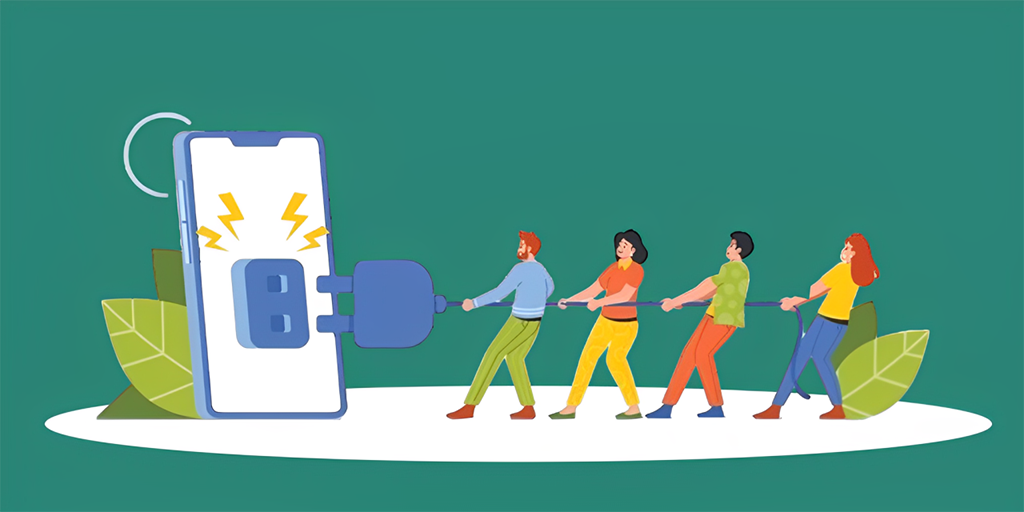By- Fizzah Khan
The Oxford dictionary defines the abyss as a deep or seemingly bottomless chasm. As fancy as it may sound to us, it’s quite literal, having given a huge chunk of each aspect of life, be it, education, social life and work life into the hands of digitalisation, how often do we really look up from our technology’s screens to realise how we have missed our lunch, lost a good amount of time which could’ve been contributed towards our hobbies and creativity or even with family?
If multiple piles of notebooks, essays, work files and documents were to be dumped on to us, how would we be able to cope? Digital media is just that, the only difference being that it is
done so in a digital manner consequently making the softness of the soft copies seem much “lightweight” than the hardness of the hard ones.
Anything in excess is not good, the same goes with digitalisation of everything these days. It may help us learn new skills, bring a massive change in the community and society as a whole, decrease the use of print media and enhance communication globally [1]. however, what it also brings with it is a dark abyss including addiction, lack of social skills, impatience and so on. As mental well-being has become a topic of great importance recently, these all seem like the surface of everything in regards to the deeper consequences of digitalisation, which tends to affect an individual on a personal level. For instance, digital overload, which is a phenomena that occurs when one spends too much time consuming media through screens which makes it hard to process information that they must’ve come across, given how research shows that college students multitask at double the frequency it’s a matter of high concern, especially for the youth [2] and also, that it makes one extremely irritable, fatigued, and has physical symptoms like headache [1].
Several ways have been suggested to deal with high digitalisation, knowing full well that it will not be stopping anytime soon, and may in fact be induced in every industry. Some of these ways involve: setting Intentional Boundaries, Prioritising Quality Over Quantity, Practicing Digital Minimalism, Taking Breaks, Organising Your Digital Space and Staying Mindful. [3]
References:
1. “Impact of Digital Media.” (n.d.). In Incrementors. [URL: https://www.incrementors.com/blog/impact-of-digital-media/]
2. Kovach, J. V., & Long, M. R. (2014). Fuel cycle optimization using genetic algorithms. ACM Transactions on Modeling and Computer Simulation, 24(2), Article 12. https://doi.org/10.1145/2556288.2557361
3. Digital Boundaries.” Weber State University Academic Peer Coaching Blog. Accessed [https://www.weber.edu/academicpeercoaching/blog/digitalboundaries.html]

